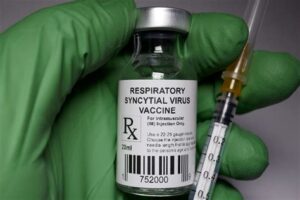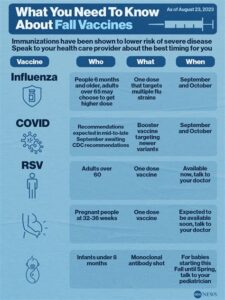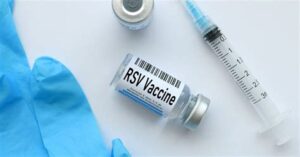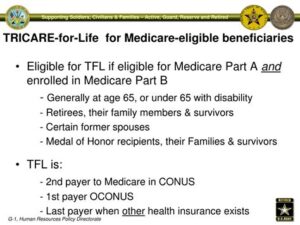Explore the relationship between pneumonia and RSV, the critical role of pneumonia vaccines, and recommendations for effective RSV prevention through vaccination.As respiratory illnesses continue to pose significant health risks, particularly for vulnerable populations, understanding the interplay between various infections is crucial. Pneumonia and Respiratory Syncytial Virus (RSV) are two respiratory concerns that often lead to severe complications, especially in young children and the elderly. With the advent of pneumonia vaccines, many are left wondering if these vaccines provide any protection against RSV as well. In this blog post, we’ll delve into the importance of pneumonia vaccines, explore the potential links between pneumonia vaccination and RSV prevention, and highlight key research findings on this topic. Our goal is to provide clarity on the role of pneumonia vaccination in safeguarding against RSV, equipping readers with the knowledge needed to make informed health decisions.
Understanding Pneumonia and RSV
Pneumonia and Respiratory Syncytial Virus (RSV) are significant respiratory illnesses that can severely impact individuals, particularly infants, the elderly, and those with weakened immune systems. Pneumonia is an infection that inflames the air sacs in one or both lungs, which may fill with fluid. RSV, on the other hand, is a common respiratory virus that causes infections of the lungs and airways. Understanding the connection between these two diseases is crucial for effective treatment and prevention.
Pneumonia can be caused by various pathogens, including bacteria, viruses, and fungi. In the case of RSV, it poses a particular risk during the winter months when outbreaks are more common. Infections by RSV can lead to bronchiolitis and pneumonia, especially in young children, making it essential for caregivers and healthcare providers to be aware of the signs and risks associated with both illnesses.
Both pneumonia and RSV share several symptoms, such as a cough, wheezing, and difficulty breathing. However, the management strategies may differ based on the underlying cause. Early intervention and vaccination play a vital role in decreasing the incidence and severity of pneumonia, which can also help mitigate the effects of RSV.
Importance of Pneumonia Vaccines
The importance of pneumonia vaccines cannot be overstated, especially in the context of preventing severe respiratory illnesses. Pneumonia is a leading cause of morbidity and mortality worldwide, particularly among vulnerable populations such as the elderly and infants. Vaccines have been developed to protect against the most common bacterial causes of pneumonia, significantly reducing hospitalizations and associated complications.
One of the major benefits of pneumonia vaccination is its potential to decrease the burden of respiratory diseases. By immunizing at-risk groups, we can lead to a decline in the incidence of pneumonia cases. The vaccines target pathogens like Streptococcus pneumoniae, one of the most prevalent bacteria responsible for pneumonia, which helps create herd immunity and protects those who cannot be vaccinated.
Furthermore, the pneumonia vaccine plays a critical role in safeguarding public health by reducing healthcare costs. With fewer hospital visits and treatments required for pneumonia, healthcare systems can allocate resources more efficiently. In times of health crises, such as the COVID-19 pandemic, ensuring high vaccination rates can also prevent overcrowding in hospitals.
In summary, the importance of pneumonia vaccines lies in their ability to reduce illness severity, protect vulnerable populations, and minimize healthcare costs. Thus, heightened awareness and advocacy for pneumonia vaccination can lead to significant health improvements in communities globally.
The Link Between Pneumonia Vaccine and RSV
Pneumonia and Respiratory Syncytial Virus (RSV) are two significant health concerns, especially in vulnerable populations such as young children and the elderly. Understanding the link between the pneumonia vaccine and RSV is crucial for managing respiratory illnesses and implementing preventive health strategies.
Research has indicated that while the pneumonia vaccine does not directly prevent RSV infections, it can help reduce the severity of respiratory illnesses caused by other pathogens. The pneumonia vaccine targets several types of bacteria that can lead to pneumonia, a condition that may be exacerbated by viral infections like RSV. Therefore, individuals who receive the vaccine may have a better overall health outcome when they contract RSV.
As we explore this relationship further, we find that vaccination against pneumonia can bolster the immune system, making it more resilient against a variety of respiratory challenges. This is particularly important in the context of RSV infections, where secondary bacterial pneumonia can complicate the disease course. By minimizing bacterial pneumonia risks through vaccination, healthcare providers can improve patient prognosis in cases of RSV infection.
Research and Studies on the Vaccine’s Impact on RSV
Recent studies have investigated the impact of the pneumonia vaccine on Respiratory Syncytial Virus (RSV) infections, revealing some promising findings. One key area of research has focused on the correlation between vaccination rates and the incidence of RSV in various populations. Several large-scale studies suggest that individuals who are vaccinated against pneumonia may experience a reduced risk of severe RSV infections, particularly among vulnerable populations such as infants and the elderly.
One notable study published in the journal *Pediatrics* evaluated the effectiveness of the pneumococcal conjugate vaccine (PCV) in reducing RSV-related hospitalizations. The researchers found that the vaccination led to a significant decrease in hospital admissions due to RSV among vaccinated children compared to those who were not vaccinated. This suggests that the pneumonia vaccine may play a crucial role in mitigating the severity of RSV infections.
Additionally, further investigations have shown that the use of pneumonia vaccines could potentially decrease the overall burden of respiratory illnesses, including RSV, thereby highlighting the importance of vaccination during respiratory disease seasons. Continued research in this area is essential to fully understand the mechanisms at play and to further establish the relationship between pneumonia vaccination and RSV protection.
Recommendations for Pneumonia Vaccination in RSV Prevention
Respiratory Syncytial Virus (RSV) is a significant cause of respiratory infections, particularly in infants and young children. It is essential to explore the role of pneumonia vaccination as a potential preventive measure against RSV and associated complications. Given the severity of both conditions, understanding the recommendations for pneumonia vaccination can aid in the protection of vulnerable populations.
Health organizations and pediatric guidelines emphasize the importance of vaccinating at-risk populations. Children under the age of 2, especially those born prematurely or with underlying health conditions, should receive the pneumonia vaccine. This can significantly reduce the risk of serious respiratory infections, including those caused by RSV. Vaccination not only protects the individual but also contributes to community immunity.
Furthermore, caregivers and individuals who interact closely with young children should also be vaccinated against pneumococcal pneumonia. Implementation of widespread vaccination can lead to decreased transmission rates of pneumonia, potentially reducing the incidence of RSV infections. Regular consultations with healthcare providers can ensure tha
Frequently Asked Questions
What is the pneumonia vaccine?
The pneumonia vaccine is designed to protect against pneumonia caused by certain bacteria, particularly Streptococcus pneumoniae.
What is RSV?
RSV, or respiratory syncytial virus, is a common virus that causes respiratory infections, particularly in infants and young children.
Can the pneumonia vaccine prevent RSV?
No, the pneumonia vaccine does not provide protection against RSV, as they are caused by different pathogens.
Who should get the pneumonia vaccine?
The pneumonia vaccine is recommended for young children, older adults, and individuals with certain health conditions that increase the risk of pneumonia.
What are the benefits of getting vaccinated against pneumonia?
Vaccination against pneumonia can help reduce the risk of severe infection, hospitalization, and complications associated with pneumonia.
Is there a vaccine available for RSV?
As of October 2023, there are vaccines in development for RSV, but they are not yet widely available for general use.
How can I protect myself from RSV?
To protect against RSV, practice good hygiene, avoid close contact with sick individuals, and consider vaccinations that may be recommended for high-risk populations.





